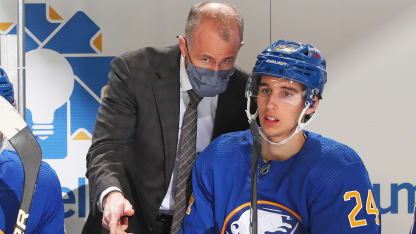Granato grew up one of six siblings in Downers Grove, Illinois, a village located 22 miles west of Chicago. His parents, Don Sr. and Natalie, had their first date at a Blackhawks game.
It was alongside his siblings that Don Jr. first displayed a knack for coaching. He organized basement tournaments, going so far as to use stencils and a ruler to carefully create brackets. He collected VHS tapes of Wayne Gretzky and used them to splice together highlights and encouraged his siblings to use a slideboard - a tool designed for speed skating - to conduct stickhandling drills.
"Looking back, he was already a coach before he knew he was a coach," his younger sister, Cammi, said.
Cammi went on to have a Hall of Fame career with USA Hockey, captaining the United States to a gold medal at the 1998 Olympic Games. Brothers Tony, Rob, and Don Jr. all went on to play collegiately at the University of Wisconsin. Tony went on to a long career playing and coaching in the NHL before taking the head coach job at his alma mater, where he resides today.
But while hockey was the primary focus in the Granato household, it was less so in the area where the siblings grew up. Don finished high school in Burnsville, Minnesota and recalls being awestruck by how hockey dominated the area's attention.
It's the same way he feels about coaching in Buffalo.
"The demand of the challenge is what excites me," he said. "To walk in, I fully believe we have a huge opportunity right in front of us. I think our players have started to grasp that with excitement and energy. So, the demand of Sabre fans, the demand of our hockey community is right where I want to be.
"I love that. You play the game and you go to bed at night for years and years and years as a kid and then a coach, even as a manger, and you just want to be in a hockey environment where people appreciate hockey and winning. I feel I couldn't ask for more in that regard."



















